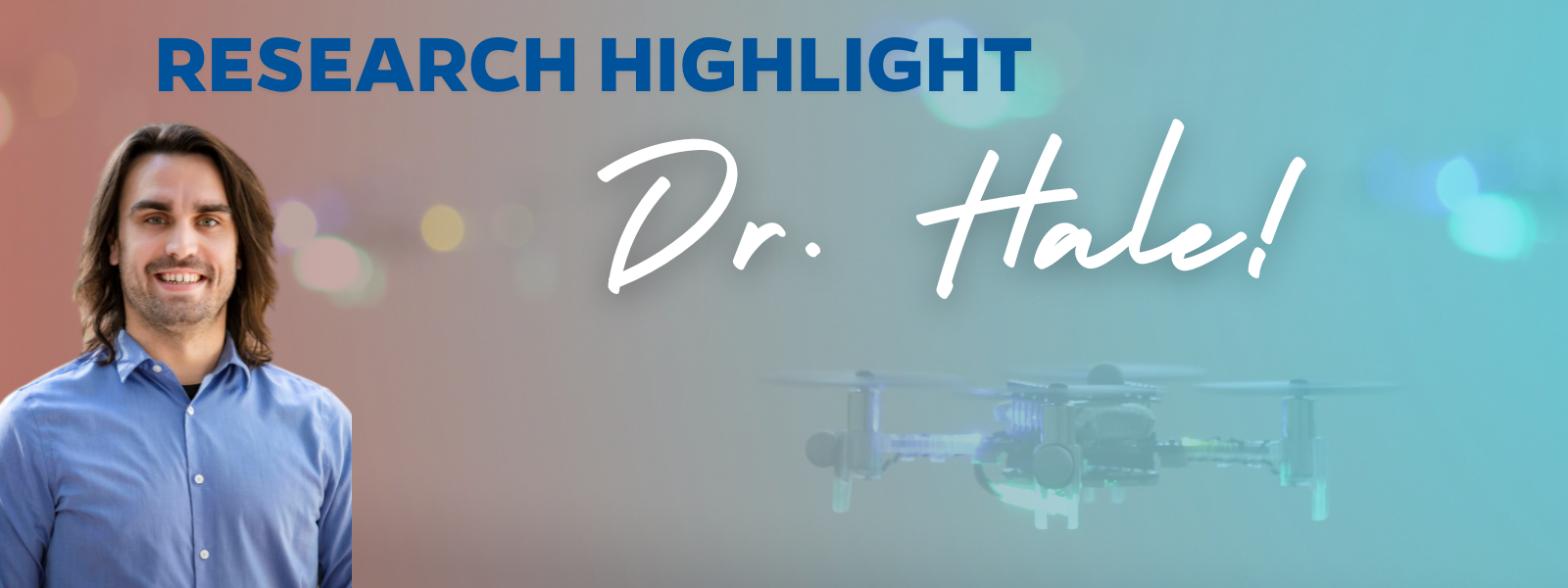While most of us were spending our quarantine time picking up new hobbies or exploring the hidden depths of Netflix, Professor Matthew Hale was writing proposals that would eventually earn him both a Young Investigator Program (YIP) award and a Defense University Research Instrumentation Program (DURIP) grant this year.
The YIP will be for $510,000 over a 3-year period, awarded by the Office of Naval Research, an organization within the US Department of the Navy. Hale said that he intends to use that money for research about communication-denied autonomy in multi-agent systems. This refers to the way members of multi-agent systems (such as robots, drones, other vehicles, etc) can continue to operate when their main source of feedback, communication with other members, is eliminated. Various factors can cause communication between agents to be severed, including a difficult environment such as underwater or a deliberate disruption by an adversary. These real-world issues are what make Hale’s research worthwhile for the Navy.
“The idea here is this can address a serious practical challenge facing the Navy,” he said. “It’s asking the question of, ‘What are good practical challenges and how can we use our expertise to address them?’”
Without the YIP, he wouldn’t have been able to dedicate as much effort to this particular project.
“This YIP will be a really good concerted push, me and multiple students for a few years, really, really digging in. I wouldn’t be able to do that without the YIP,” he said.
The DURIP on which Hale is the principal investigator is a $150,000 equipment grant from the Department of Defense. The money will go towards the new UF Autonomy Park, including a large outdoor testbed on which to develop autonomy strategies that work under challenging conditions. Performing experiments outside has the advantage of denying the equipment the perfect conditions of an indoor lab with no wind, rain, uneven ground, or any other environmental challenge.
“If you want to address practical challenges you need to do practical testing, so that’s what motivated the development of the Autonomy Park. We don’t want to make this easy on ourselves. We’re looking for a challenge, we’re looking for challenging conditions,” he said. “Having an outdoor testbed is amazing. I mean, that really is a game-changer for us.”
The DURIP money will also be used to acquire legged vehicles, increasing the heterogeneity and versatility of the research equipment, which already includes wheeled vehicles, drones, and other robots.
“It’s that interaction of multi-robot teams with different capabilities that lets us develop a lot of rich, interesting, useful behaviors and potentially uncover things we hadn’t anticipated,” Hale said.
Ben Crosbie
Marketing & Communications Student Assistant
UF Mechanical & Aerospace Engineering
June 6, 2022

